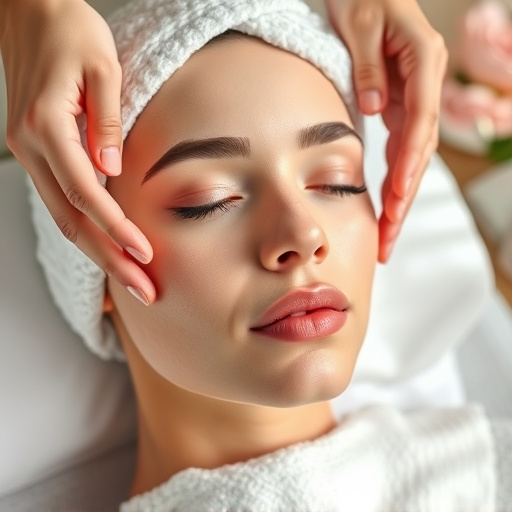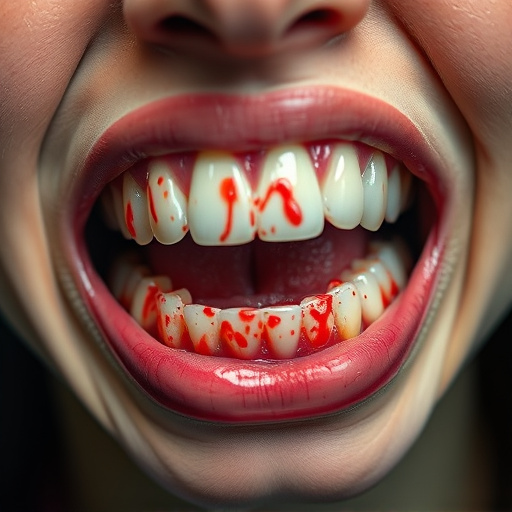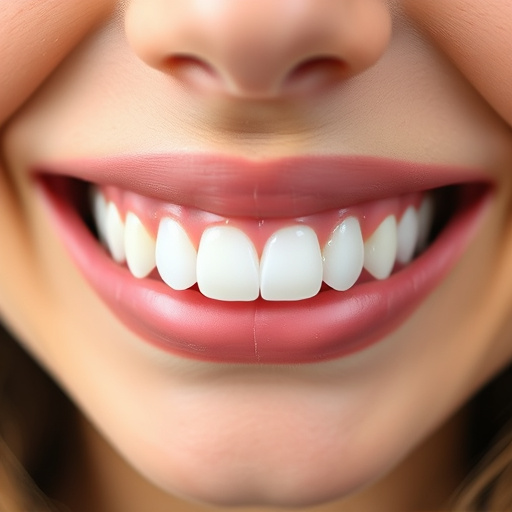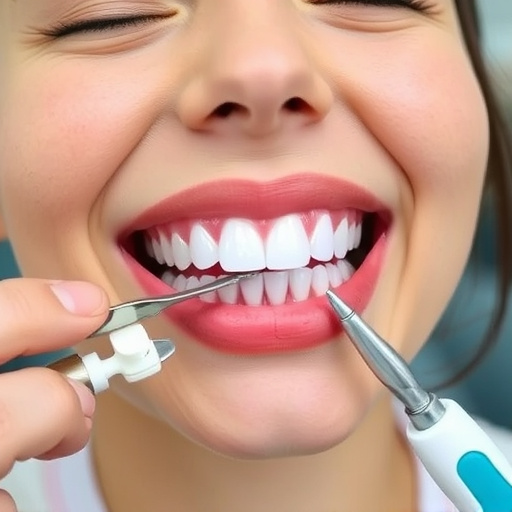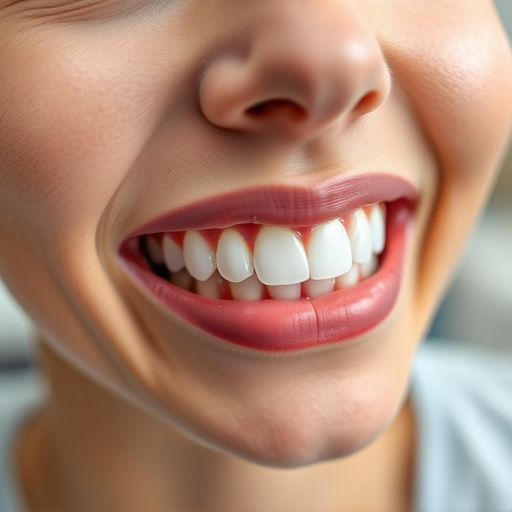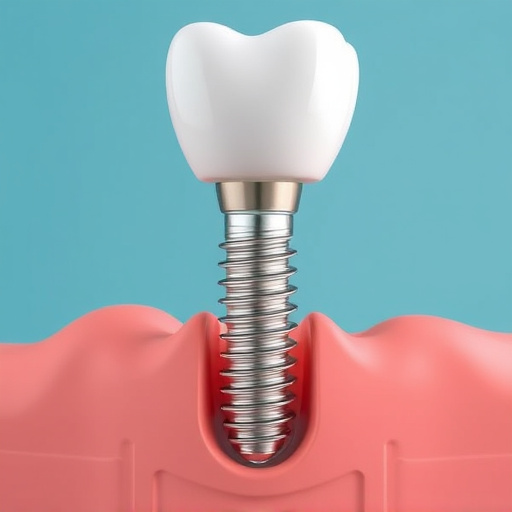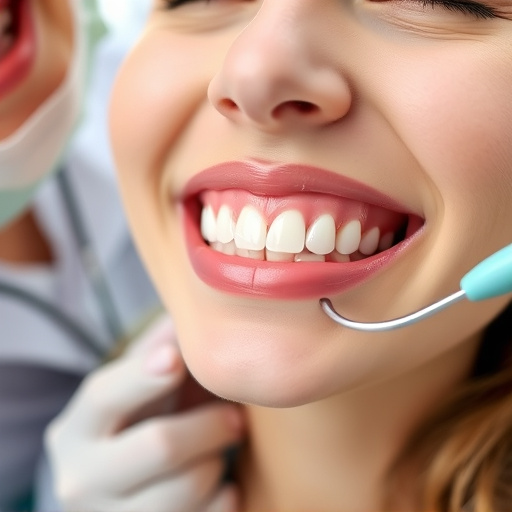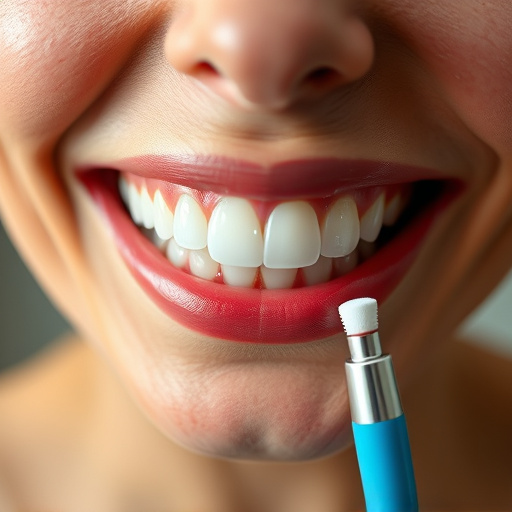Teeth grinding (bruxism) impacts oral health and overall well-being, caused by stress, anxiety, or sleep disorders. Nightly grinding leads to tooth wear and jaw pain. Treatment includes mouthguards, dental cleaning, stress reduction, wisdom tooth removal, and neuromuscular therapy. Advanced therapies like Botox offer non-invasive solutions. Regular dental exams monitor damage and adjust treatment plans.
“Teeth grinding, or bruxism, is a common yet often overlooked sleep disorder affecting millions. Understanding its causes and effects is the first step towards finding effective teeth grinding treatment. This article explores top non-invasive dental solutions for nighttime crunchers, delving into advanced therapies that disrupt the habit loop. By addressing both the symptoms and root causes, these treatments offer lasting relief from bruxism, helping you reclaim restful sleep and a healthier smile.”
- Understanding Teeth Grinding Causes and Effects
- Non-Invasive Dental Solutions for Nighttime Crunchers
- Advanced Therapies: Breaking the Habit Loop
Understanding Teeth Grinding Causes and Effects

Teeth grinding, medically known as bruxism, is a common condition that can have significant effects on oral health and overall well-being. Understanding its causes is the first step towards finding effective teeth grinding treatment. This behavior, often subconscious, can stem from various factors such as stress, anxiety, sleep disorders, or even certain medical conditions. It’s not uncommon for individuals to grind their teeth during sleep, a condition called nocturnal bruxism, leading to potential dental issues like tooth wear, fractures, and jaw pain.
The impact of prolonged teeth grinding can be severe, requiring specialized care. Excessive grinding can lead to the need for dental procedures such as wisdom tooth removal or dental implants to restore damaged jaws and teeth. In some cases, simple solutions like dental fillings might suffice to fix worn-down teeth. Identifying and addressing the underlying causes through professional guidance is crucial in managing bruxism effectively, ensuring better oral health and quality sleep.
Non-Invasive Dental Solutions for Nighttime Crunchers

For those who experience teeth grinding at night—a condition known as bruxism—it can lead to significant dental issues and discomfort. Fortunately, there are several non-invasive dental solutions available that offer effective teeth grinding treatment. One of the most common and accessible options is a mouthguard. Custom-fitted mouthguards, often recommended by general dentistry professionals, are designed to protect your teeth during sleep by preventing them from making contact with each other. This simple yet effective device can significantly reduce or eliminate bruxism-related damage.
Another non-invasive approach involves regular teeth cleaning and dental check-ups. Maintaining good oral hygiene is crucial in managing bruxism. Your dentist might also suggest trying stress-reducing techniques, such as meditation or jaw exercises, to alleviate tension that contributes to teeth grinding. In some cases, wisdom tooth removal can be recommended if the impacted or partially erupted wisdom teeth are exacerbating the condition. Thus, addressing these issues through general dentistry practices offers comprehensive teeth grinding treatment options tailored to individual needs.
Advanced Therapies: Breaking the Habit Loop
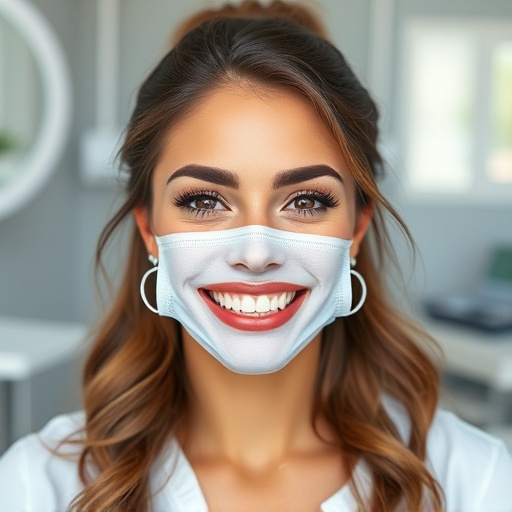
Advanced therapies offer innovative solutions to break the habit loop of teeth grinding. Beyond traditional approaches like mouthguards and behavioral modifications, modern dentistry introduces cutting-edge options tailored for long-term relief. For instance, neuromuscular therapy targets the connection between the brain and jaw muscles, aiming to relax these muscles and reduce clenching or grinding during sleep. This approach has shown promising results in helping individuals reclaim peaceful slumber without disrupting their oral health.
Additionally, dental professionals may suggest botox injections to temporarily paralyze jaw-clenching muscles. This non-invasive procedure can provide significant relief for those who grind their teeth at night, acting as a preventive dentistry measure and potentially reducing the need for more invasive treatments like tooth extractions. Regular routine oral exams also play a crucial role in managing teeth grinding by allowing dentists to monitor any damage and adjust treatment plans accordingly.
Teeth grinding, or bruxism, can significantly impact your oral health and overall well-being. However, with the right approach, you can break free from this habit. From understanding the root causes to exploring non-invasive dental solutions and advanced therapies, there are effective treatments available that cater to various needs. By addressing bruxism proactively, you can prevent further damage, improve sleep quality, and regain a peaceful, healthy smile. Remember, seeking professional advice is key to finding the best teeth grinding treatment for your unique situation.





